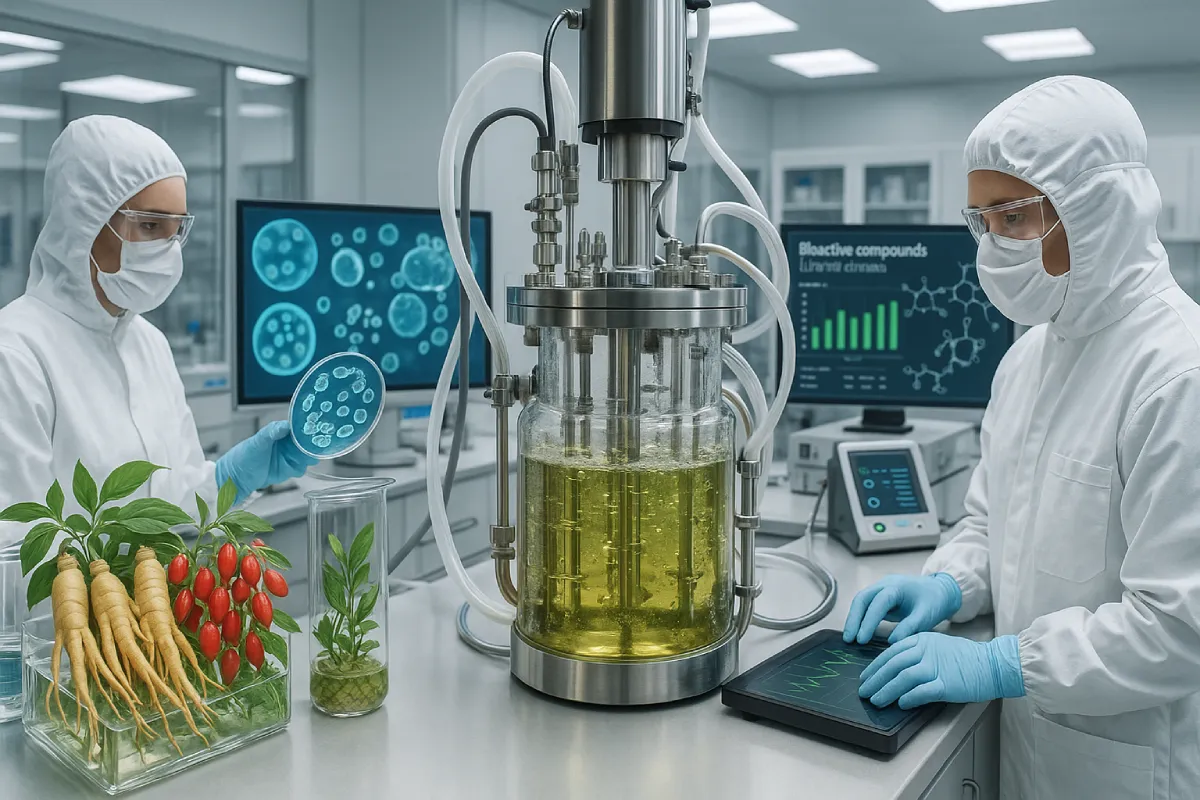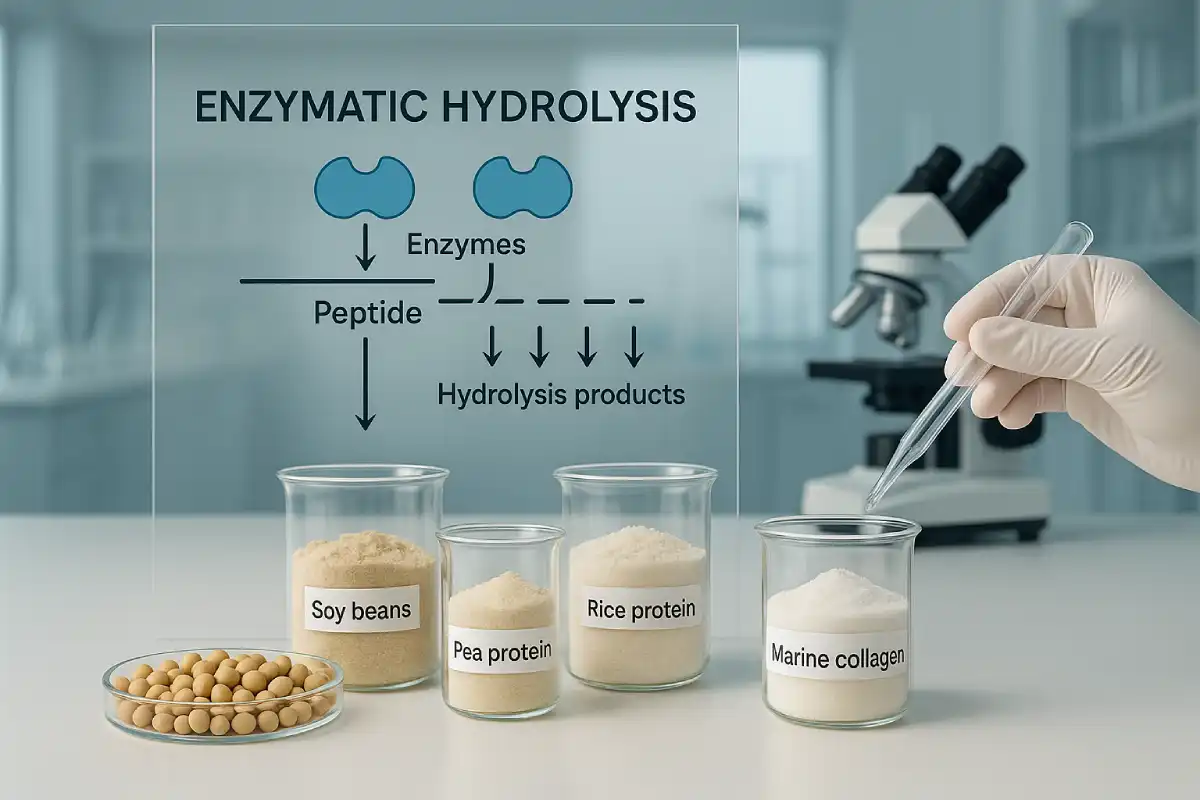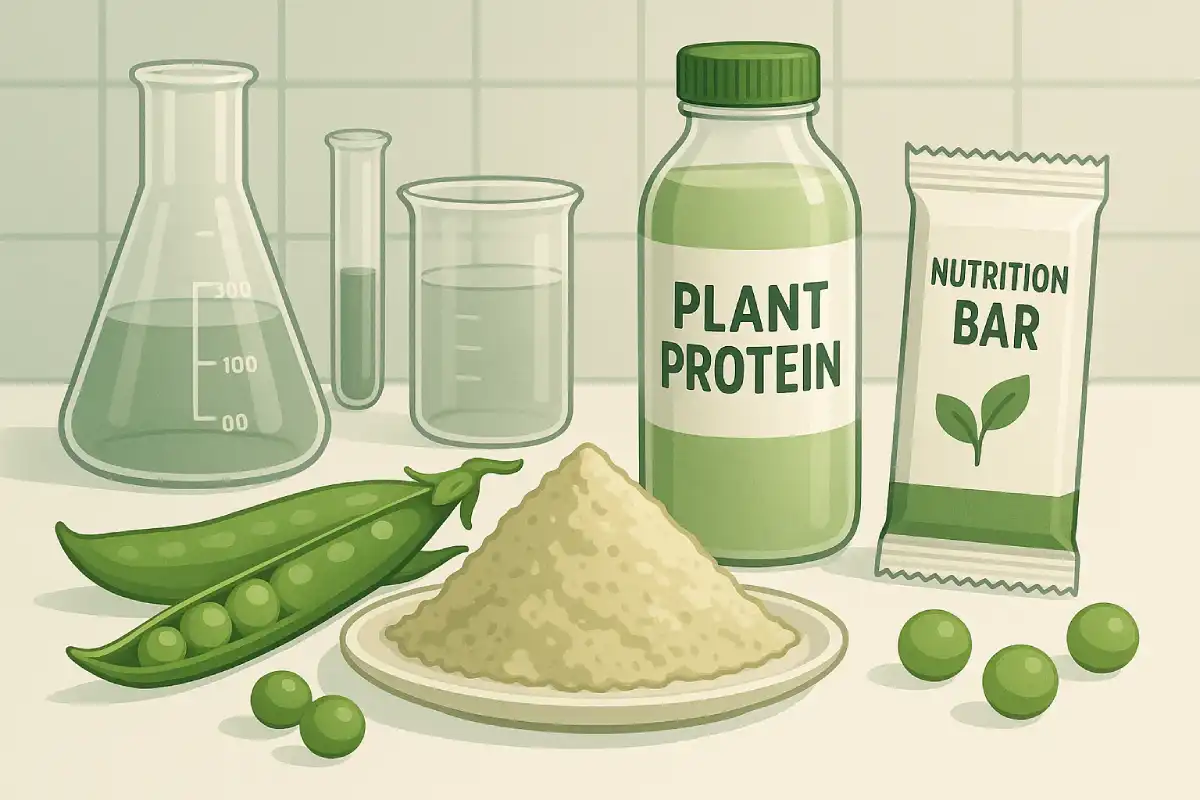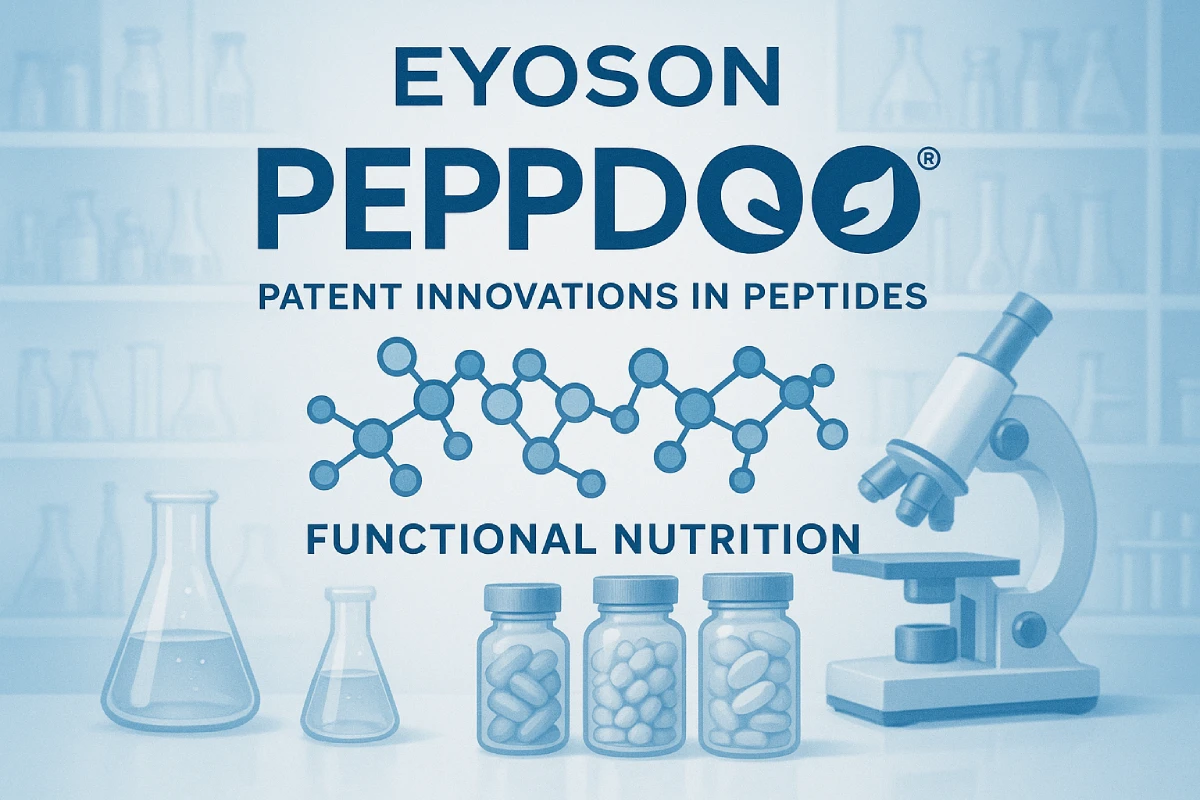The Rise of Collagen Tripeptides in Functional Nutrition
In recent years, the demand for bioactive ingredients in functional nutrition has surged, driven by consumers’ increasing focus on health and wellness. Among these ingredients, collagen tripeptides have garnered significant attention for their potential benefits in skin and joint health. Collagen, a structural protein found in connective tissues, plays a crucial role in maintaining the integrity and elasticity of the skin and the strength and flexibility of joints. As the body ages, collagen production declines, leading to visible signs of aging and joint discomfort. Supplementing with collagen tripeptides has emerged as a promising strategy to counteract these effects.
What Are Collagen Tripeptides?
Collagen tripeptides are short chains of amino acids derived from the hydrolysis of collagen proteins. These peptides typically consist of three amino acids and are characterized by their low molecular weight, which enhances their bioavailability and absorption in the body. Unlike larger collagen molecules, tripeptides can be rapidly absorbed into the bloodstream and transported to various tissues, exerting their beneficial effects more efficiently.
The primary sources of collagen tripeptides include bovine, porcine, and marine collagen. Marine collagen, in particular, is favored for its high purity and sustainability, as it is sourced from fish scales and skin, reducing waste in the seafood industry.
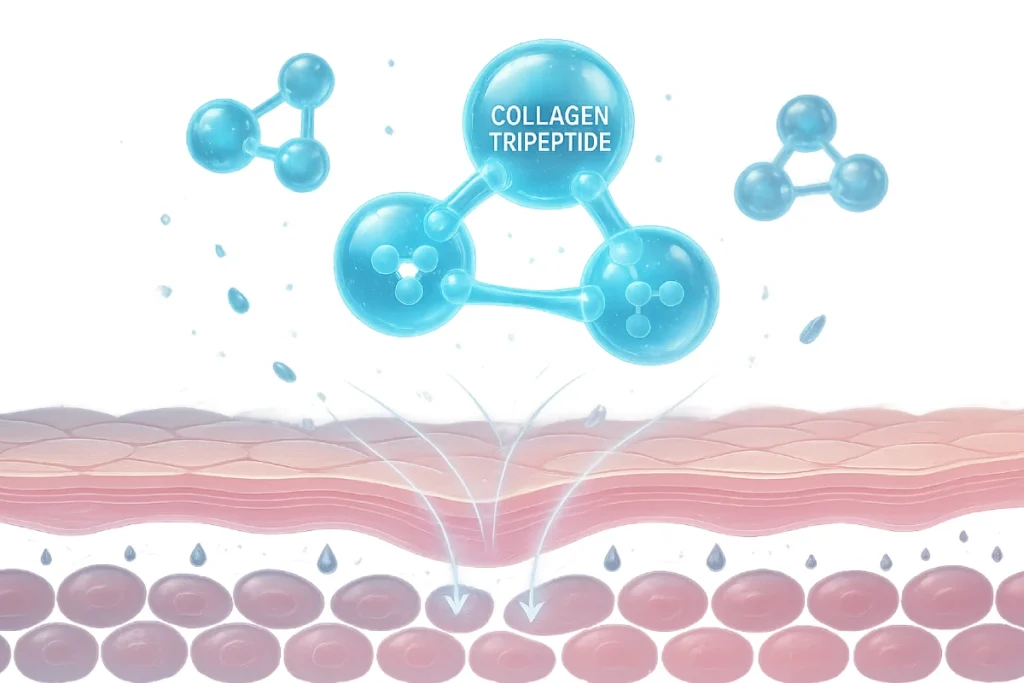
Key Health Benefits of Collagen Tripeptides
1. Skin Health: Anti-Aging Effects
Collagen tripeptides have been shown to improve skin hydration, elasticity, and reduce the appearance of wrinkles. A systematic review and meta-analysis of randomized controlled trials (RCTs) involving 1,721 participants demonstrated that oral supplementation with hydrolyzed collagen significantly enhanced skin hydration and elasticity compared to placebo groups [1]. These effects are attributed to the stimulation of collagen synthesis in the dermis and the inhibition of collagen degradation.
2. Joint Health: Support for Cartilage and Mobility
Joint health is another area where collagen tripeptides have shown promise. A 24-week clinical trial involving 147 participants found that supplementation with low molecular weight collagen peptides resulted in significant reductions in joint pain, particularly during activities such as walking [2]. The bioactive peptides may support cartilage repair and reduce inflammation, contributing to improved joint function and comfort.
Formulation and Application in Functional Products
Incorporating collagen tripeptides into functional products requires careful consideration of their stability, solubility, and compatibility with other ingredients. Due to their low molecular weight, collagen tripeptides are highly soluble in water, making them suitable for inclusion in beverages, powders, and capsules. They can be combined with other skin-supportive ingredients like hyaluronic acid and vitamin C to enhance their efficacy.
For joint health applications, collagen tripeptides can be formulated into supplements that target inflammation and support cartilage regeneration. The addition of complementary ingredients such as turmeric or glucosamine may provide synergistic effects, further promoting joint health.
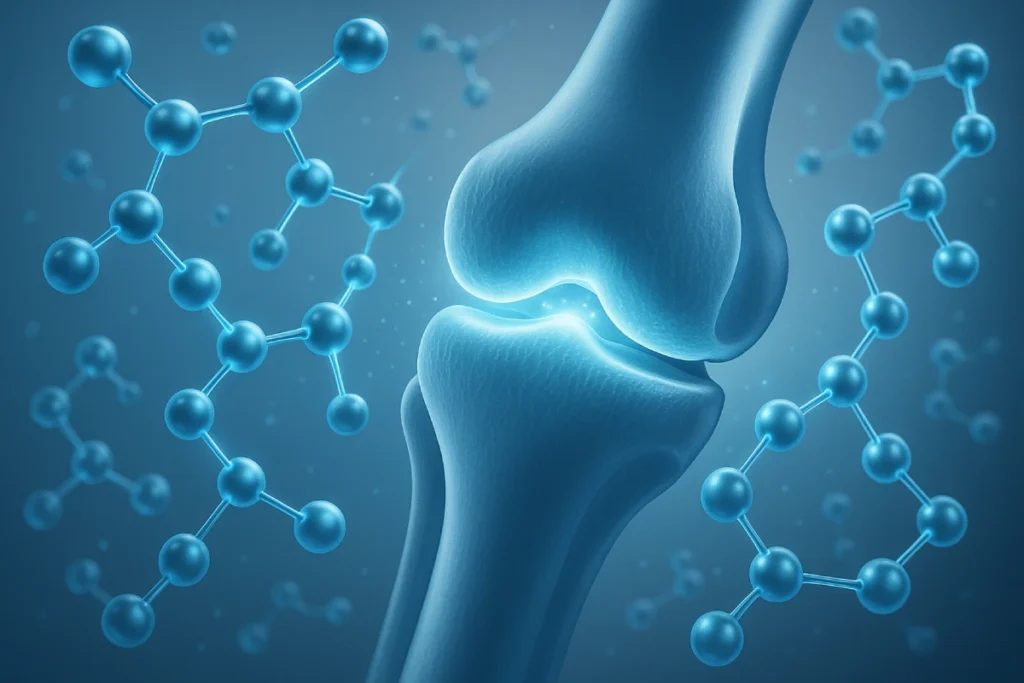
Quality Assurance and Sourcing Considerations
When selecting collagen tripeptide suppliers, it is essential to consider factors such as sourcing practices, manufacturing standards, and product testing. Reputable suppliers adhere to Good Manufacturing Practices (GMP) and ISO certifications to ensure product quality and safety. For instance, companies like Titagen® and Collamin® produce collagen peptides in GMP-certified facilities, employing stringent quality control measures to meet international standards [2][3].
Sourcing transparency is also crucial. Suppliers that provide detailed information about the origin of their collagen, such as grass-fed bovine or sustainably sourced marine collagen, can offer additional assurance regarding the quality and ethical considerations of their products.
B2B Success Stories: Real-World Applications
Several companies have successfully integrated collagen tripeptides into their product lines, achieving notable results:
- Vitaquest: A leading supplement manufacturer in the USA, Vitaquest has developed a range of collagen-based products, including powders and capsules, that have been well-received in the market. Their adherence to GMP standards ensures consistent product quality and safety [4].
- NorCal Organic: Specializing in organic supplements, NorCal Organic offers hydrolyzed collagen peptides sourced from grass-fed bovine. Their products are manufactured in GMP-certified facilities and undergo third-party testing to verify purity and potency [5].
- Natural Force: Known for their commitment to clean ingredients, Natural Force produces collagen peptides that are USDA Organic certified and manufactured in cGMP-certified facilities. Their products cater to health-conscious consumers seeking high-quality, sustainable supplements [6].
These examples illustrate the successful application of collagen tripeptides in functional products, highlighting the potential for businesses to capitalize on this growing market segment.
Conclusion: Embracing Collagen Tripeptides in Functional Nutrition
Collagen tripeptides represent a premium ingredient with demonstrated benefits for skin and joint health. Their high bioavailability, coupled with robust clinical evidence supporting their efficacy, makes them an attractive option for incorporation into functional nutrition products. By partnering with reputable suppliers that adhere to stringent quality standards, businesses can develop products that meet consumer demand for effective and sustainable health solutions.
Partner with Eyoson for Premium Collagen Tripeptides
Ensure high-quality skin & joint health products with GMP-certified, clinically backed collagen tripeptides.
Request a SampleFAQ
Collagen tripeptides are small peptides, usually around 300–500 Da, which allows high absorption and bioavailability. For B2B formulators, this means the ingredient can efficiently reach target tissues (skin and cartilage) and demonstrate measurable effects in finished products.
- Marine collagen: High purity, sustainable, low allergenicity, ideal for beverages and skincare-oriented products.
- Bovine collagen: Cost-effective, widely available, suitable for capsules and powders.
- Porcine collagen: Occasionally used but less common due to dietary restrictions.
Suppliers often provide traceability and certificates for sourcing transparency, which is important for regulatory compliance and marketing claims.
Beverages & drinks: Water-soluble, stable in low-pH formulas.
Capsules & tablets: Compatible with common excipients; often paired with vitamin C or hyaluronic acid for synergistic effects.
Powders & mixes: Easy to blend with protein powders or nutraceutical complexes.
B2B users should verify solubility, stability under storage, and taste masking requirements for each format.
- Vitamin C: Enhances collagen synthesis.
- Hyaluronic acid: Supports skin hydration and elasticity.
- Glucosamine / Chondroitin: Supports joint health.
- Plant polyphenols: Provide antioxidant and anti-inflammatory support.
These combinations can be leveraged for differentiated B2B product formulations.
- Skin health: Improved elasticity, hydration, reduced wrinkles.
- Joint health: Supports cartilage repair, reduces discomfort, enhances mobility.
B2B brands can highlight clinically backed benefits, molecular weight, and sourcing transparency in marketing materials to build credibility.
- GMP and ISO certifications for manufacturing.
- Third-party testing for purity, heavy metals, microbiology.
- Traceable sourcing: Grass-fed bovine or sustainably sourced marine collagen.
Reliable suppliers provide Certificates of Analysis (COA) and batch-to-batch consistency.
- Medical nutrition: Supports aging populations with skin and joint needs.
- Sports nutrition: Accelerates recovery and supports joint integrity for active individuals.
- Functional food brands: Can be integrated into protein bars, drinks, or nutraceutical powders.
Clinical studies typically use 2.5–10 g/day of collagen peptides for skin or joint benefits. Exact dosage depends on product format, target claims, and synergistic ingredients. B2B developers should confirm dosage feasibility for their specific formulations and regulatory compliance.
- Verify the ingredient status in local regulatory frameworks (e.g., FDA, EFSA, CFDA).
- Use documented clinical evidence for marketing claims.
- Maintain full traceability and COAs for each batch supplied.
- Look for experience in functional nutrition ingredients.
- Check patented or proprietary hydrolysis technologies for high-quality tripeptides.
- Evaluate quality control, COA availability, and supply chain reliability.
- Request technical support for formulation guidance and finished product testing.
References
- Zague, V., de Freitas, V. M., da Costa Rosa, M., & de Oliveira, S. M. (2018). Effects of oral collagen for skin anti-aging: A systematic review and meta-analysis. Journal of Cosmetic Dermatology, 17(4), 467-474.
- TITAGEN®. (2024). Top Hydrolyzed Fish Collagen Peptide Manufacturer | Titagen®.
- Collamin®. (2021). High-quality collagen from Switzerland.
- Vitaquest. (2023). Collagen Supplement Manufacturer In The USA – Vitaquest.
- NorCal Organic. (2023). Norcal Hydrolyzed Collagen Peptides, 12oz.
- Natural Force. (2023). Grass Fed Collagen Peptides Protein Powder.
